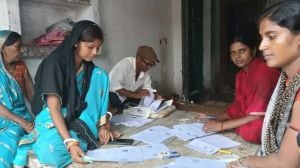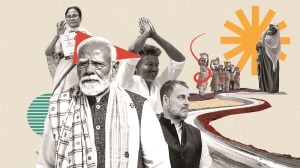Think local
The foreign trade policy announced by the government and its forecast looks impressive. But a deeper perusal will reveal that ...

The foreign trade policy announced by the government and its forecast looks impressive. But a deeper perusal will reveal that all the measures will benefit the rich leaving the poor even poorer. Just look at the list. Exemption of service tax on exports, free trade warehousing zones, export promotion council and biotechnology park. Apparently these are aimed at increasing exports and creating new jobs. But going by previous experience, they will add some extra money to the exporters and middlemen leaving the bottom-most layers at the mercy of God. Let the government forget its foreign trade policy and let it look into local trade policy. Millions of poor farmers will be very happy if they can get a reasonable price for their products. They do not bother whether there is an increase in export or not.
8212; V.S. Venkatavaradan Salem
Secret reasons
8226; I have the following queries for the Indian authorities regulating airline operations. One, how many passengers flying in and out of India are Indians? Two, why do we end up paying more to travel to India compared to fares for similar distances elsewhere? Three, how many foreign airlines make money out of Indian travellers? Four, why is our government so indifferent to the obvious solution 8212; an open sky policy? Is there a secret something only government authorities know about?
8212; D. Raveendran Singapore
Open up
8226; We have everything to gain and nothing to lose by letting more airlines operate between India and the US. The proposal should be viewed in terms of the impact it will have on tourism, trade and closer ties between the two countries with more people to people contact. Smaller issues of the impact on our national carrier should hardly be the determining factor. In any case, the future of Air India depends on its release from government control and protectionist policies are unlikely to help it. As one who has family in the US, I look forward to an early implementation of the open skies policy so that we can get cheaper fares and more seats.
8212; Suresh Vohra On e-mail
Questions, still
8226; V.P. Malik8217;s 8216;Act of last resort8217; IE, September 1 is a great article. However, let me ask you this: the Armed Forces Special Powers Act has been deployed in Manipur, for instance, for an unusually long time. Why did the army not question the concerned authorities about the possible fallout of such a long deployment and act on it? Also, do the aberrations and excesses not underline the need for better training for the army personnel posted under these conditions?
8212; Usha Thiyam Kiel
Caste rules
8226; The article 8216;The prestige of not carrying one8217;s briefcase8217; IE, August 27 is interesting. This is a part of the culture we have inherited. Our caste system ensures the availability of a large number of attendants from the lower castes for people with higher status. Our constitution provides for 8220;education for all8221; but even after 57 years of Independence about 33 per cent of our population is illiterate. In the past 57 years it is mostly upper castes who were in charge of education. They followed the dictates of caste instead of our constitution. No wonder one8217;s status is assessed by the number of attendants one is surrounded by.
8212; M.G. Khurana On e-mail
- 01
- 02
- 03
- 04
- 05































